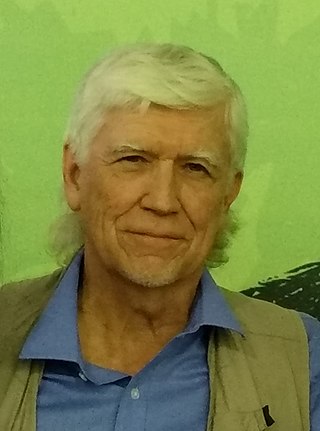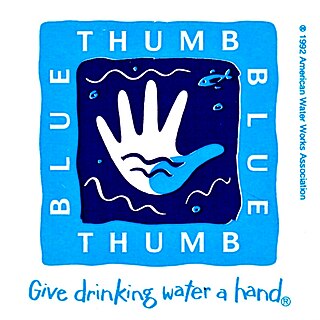
Aldo Leopold was an American writer, philosopher, naturalist, scientist, ecologist, forester, conservationist, and environmentalist. He was a professor at the University of Wisconsin and is best known for his book A Sand County Almanac (1949), which has been translated into fourteen languages and has sold more than two million copies.

The British Computer Society (BCS), branded BCS, The Chartered Institute for IT, since 2009, is a professional body and a learned society that represents those working in information technology (IT), computing, software engineering and computer science, both in the United Kingdom and internationally. Founded in 1957, BCS has played an important role in educating and nurturing IT professionals, computer scientists, software engineers, computer engineers, upholding the profession, accrediting chartered IT professional status, and creating a global community active in promoting and furthering the field and practice of computing.

The Institute of Mathematics and its Applications (IMA) is the UK's chartered professional body for mathematicians and one of the UK's learned societies for mathematics.
Frances Hamerstrom was an American writer, naturalist and ornithologist known for her work with the greater prairie chicken in Wisconsin, and for her research on birds of prey. Hamerstrom was a prolific writer, publishing over 100 professional papers and 10 books on the prairie chicken, harriers, eagles, and other wildlife topics. Some were translated into German.

Russell Alan Mittermeier is a primatologist and herpetologist. He has written several books for both popular and scientist audiences, and has authored more than 300 scientific papers.

The Ecological Society of America (ESA) is a professional organization of ecological scientists. Based in the United States and founded in 1915, ESA publications include peer-reviewed journals, newsletters, fact sheets, and teaching resources. It holds an annual meeting at different locations in the USA and Canada. In addition to its publications and annual meeting, ESA is engaged in public policy, science, education and diversity issues.

Wildlife management is the management process influencing interactions among and between wildlife, its habitats and people to achieve predefined impacts. It attempts to balance the needs of wildlife with the needs of people using the best available science. Wildlife management can include wildlife conservation, gamekeeping and pest control. Wildlife management draws on disciplines such as mathematics, chemistry, biology, ecology, climatology and geography to gain the best results.

American Water Works Association (AWWA) is an international non-profit, scientific and educational association founded to improve water quality and supply. Established in 1881, it is a lobbying organization representing a membership of around 50,000 members worldwide.

The Soil Science Society of America (SSSA), is the largest soil-specific society in the United States. It was formed in 1936 from the merger of the Soils Section of the American Society of Agronomy and the American Soil Survey Association. The Soils Section of ASA became the official Americas section of the International Union of Soil Sciences in 1934, a notable role which SSSA continues to fulfill.

Margaret D. Lowman, Ph.D. a.k.a. Canopy Meg is an American biologist, educator, ecologist, writer, explorer, and public speaker. Her expertise involves canopy ecology, canopy plant-insect relationships, and constructing canopy walkways.

The Institute of Marine Engineering, Science and Technology (IMarEST) is the international membership body and learned society for marine professionals operating in the spheres of marine engineering, science, or technology. It has registered charity status in the UK. It has a worldwide membership of 21,000 individuals based in over 128 countries. The institute is a member of the UK Science Council and a licensed body of the Engineering Council UK.

The Association for Applied Psychophysiology and Biofeedback (AAPB) was founded in 1969 as the Biofeedback Research Society (BRS). The association aims to promote understanding of biofeedback and advance the methods used in this practice. AAPB is a non-profit organization as defined in Section 501(c)(6) of the Internal Revenue Service Code.

The Society of American Foresters (SAF) is a professional organization representing the forestry industry in the United States. Its mission statement declares that it seeks to "advance the science, education, and practice of forestry; to enhance the competency of its members; to establish professional excellence; and, to use the knowledge, skills and conservation ethic of the profession to ensure the continued health and use of forest ecosystems and the present and future availability of forest resources to benefit society". Its headquarters are located in Washington, D.C.
The George Wright Society (GWS) is a nonprofit association that promotes conservation of parks, protected and conserved areas, and cultural/historic sites worldwide. GWS also promotes other forms of place-based stewardship. Founded in 1980, GWS is named after George Meléndez Wright, the first scientist to work for the U.S. National Park Service and the initiator of the first systematic surveys of wildlife in U.S. national park units.
The American Registry of Professional Animal Scientists (ARPAS) is a professional organization that provides certification of animal scientists through examination. It also develops and promotes a code of ethics, offers continuing education, and disseminates scientific information through publication of the peer-reviewed journal Applied Animal Science
The North American Model of Wildlife Conservation is a set of principles that has guided wildlife management and conservation decisions in the United States and Canada. Although not formally articulated until 2001, the model has its origins in 19th century conservation movements, the near extinction of several species of wildlife and the rise of sportsmen with the middle class. Beginning in the 1860s sportsmen began to organize and advocate for the preservation of wilderness areas and wildlife. The North American Model of Wildlife Conservation rests on two basic principles – fish and wildlife are for the non-commercial use of citizens, and should be managed such that they are available at optimum population levels forever.
Rodrigo A. Medellín is a Mexican ecologist and Senior Professor of Ecology at the Institute of Ecology, University of Mexico (UNAM). Known for his work in bat, jaguar, bighorn sheep and other species conservation, his research has always been designed and conducted to advice conservation policy and conservation decision-making processes in Mexico and 16 other countries for over 40 years.
The Canadian Society of Soil Science (CSSS) is a non-governmental, non-profit organization for scientists, engineers, technologists, administrators and students involved in professional soil science. Its goal is to nurture the discipline of soil science in Canada.
The European Society of Clinical Microbiology and Infectious Diseases (ESCMID) is a non-profit scientific international organization with headquarters in Basel, Switzerland. Its mission is to improve the diagnosis, treatment and prevention of infection-related diseases by promoting and supporting research, education, training, and good medical practice. An important activity of the society is the organization of the annual scientific congress ECCMID. This is recognized as the largest international forum for disseminating research in the fields of medical microbiology and infectious diseases for experts in academia, clinical settings and industry. The congress began as a biennial event, with about 1,500 participants at its inaugural occurrence in 1983. It became an annual event in the year 2000, and it has grown since then, now attracting around 14,000 participants annually. More than 5,000 scientific abstracts are submitted for inclusion each year by researchers from multiple countries. The most recent ECCMID was held in April 2023 in a hybrid format, both online and onsite in Copenhagen, Denmark.
Raymond Fredric Dasmann was an American biologist and environmental conservationist whose works were formative to the field of environmental science. Among other achievements, he helped develop the idea of sustainable development and wrote an influential textbook, Environmental Conservation, first published in 1959; it was in its fifth edition at the time of Dasmann's death in 2002.












